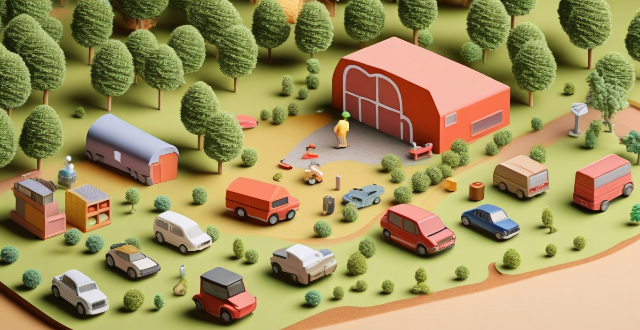Climate-friendly products, designed to minimize environmental impact, significantly contribute to waste reduction efforts through reduced resource consumption, lowered carbon footprints, encouragement of a circular economy, increased consumer awareness, and creation of market incentives that favor waste reduction. These products are typically made from sustainable materials, use less energy during production, and have a lower carbon footprint, leading to efficient production, increased product durability, energy efficiency, reduced transportation needs, recycling and reuse, and biodegradability. By adopting these products, we not only mitigate the effects of climate change but also contribute significantly to global waste reduction efforts.

The Impact of Climate-Friendly Products on Waste Reduction Efforts
Introduction
Climate-friendly products are designed to have a minimal negative impact on the environment. These products are typically made from sustainable materials, use less energy during production, and have a lower carbon footprint. But how do these products impact waste reduction efforts? Let's dive into the details.
Reduced Resource Consumption
Efficiency in Production
Climate-friendly products often require less resource-intensive processes to produce. This means that fewer raw materials are needed, which directly translates to reduced waste generation at the source.
Longevity and Durability
Products designed with environmental considerations tend to be more durable. They are built to last longer, which reduces the need for replacements and therefore decreases waste.
Lowered Carbon Footprint
Energy Efficiency
Many climate-friendly products are designed to be energy efficient. This not only saves energy but also results in less waste from energy production processes.
Transportation
Products made from locally sourced or recycled materials reduce the need for long-distance transportation, thereby cutting down on emissions and waste associated with logistics.
Encouragement of Circular Economy
Recycling and Reuse
Climate-friendly products often incorporate recycled materials and are designed for easy disassembly, making them more suitable for recycling at the end of their life cycle.
Biodegradability
Many eco-friendly products are made from materials that are biodegradable or compostable, meaning they break down naturally without producing harmful waste.
Consumer Awareness and Behavior Change
Educational Impact
By using climate-friendly products, consumers become more aware of environmental issues, which can lead to changes in behavior that favor waste reduction.
Market Incentives
As demand for sustainable products grows, companies are incentivized to create products that generate less waste, further driving waste reduction efforts.
Conclusion
In summary, climate-friendly products play a significant role in waste reduction efforts by:
- Reducing resource consumption through efficient production and increased product durability.
- Lowering the carbon footprint through energy efficiency and reduced transportation needs.
- Encouraging a circular economy through recycling, reuse, and biodegradability.
- Raising consumer awareness and promoting behavior change towards sustainability.
- Creating market incentives that favor waste reduction in product design and production.
By adopting climate-friendly products, we not only mitigate the effects of climate change but also contribute significantly to global waste reduction efforts.